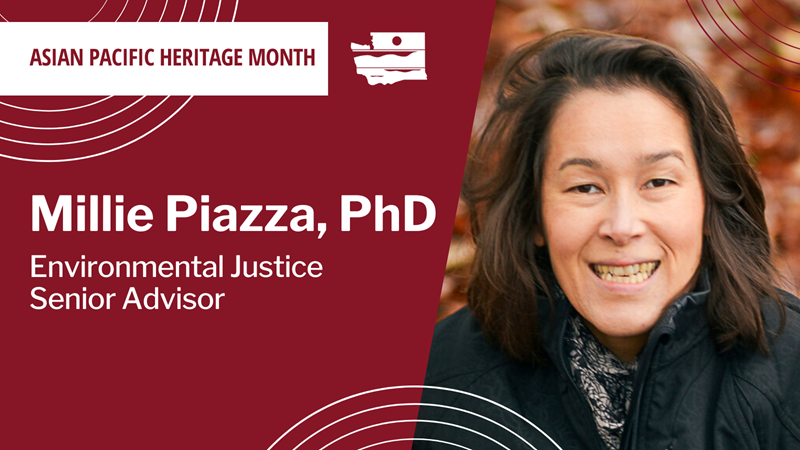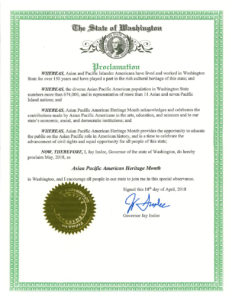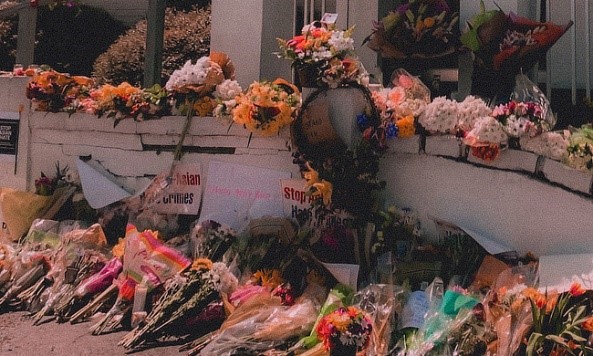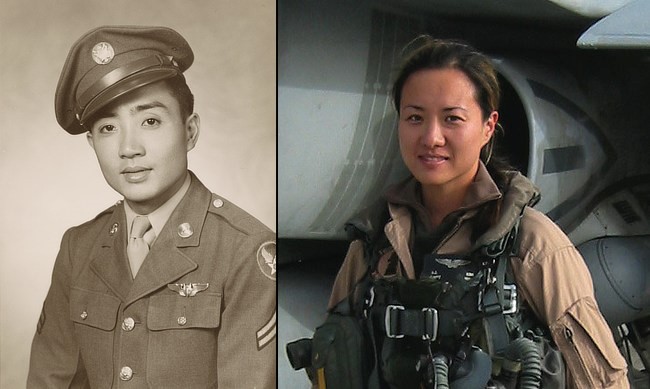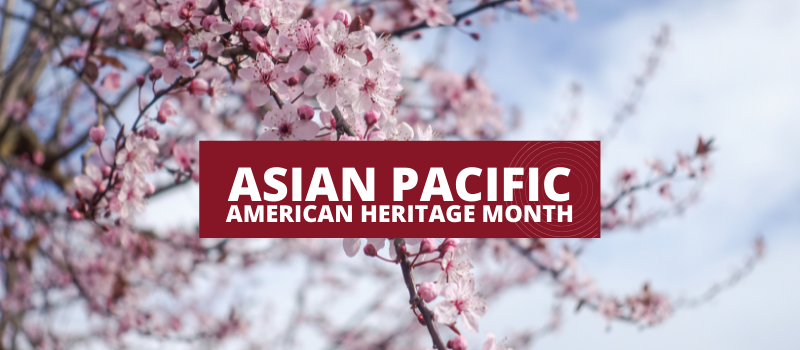
Acknowledging the historic achievements of Asian Americans and Pacific Islanders (AAPI) and highlighting their impact on American history is a great way to celebrate Asian Pacific American Heritage Month.
We decided to go hyper-local and celebrate by highlighting our staff’s efforts to make our environmental work more accessible to AAPI communities in Washington. Our work to reach communities that might otherwise be left out is incredibly valuable and is often times behind-the-scenes.
We’ll be highlighting these stories throughout the month.
Updated May 28, 2021.
Sirn Tran says he was inspired to make a positive impact on people’s lives when he decided to translate English to Vietnamese for Ecology.
“It all began when I was asked to create an IT solution for Ecology’s translation team,” said Sirn.
Sirn is a software application architect at Ecology. He works with the 10 environmental programs and other offices within the agency. He studied at the Evergreen State College and earned his Bachelor of Science degree in information technology. He tackles big projects; he designs and guides solutions for creating large-scale systems used across the state.
As Sirn was working with the translation team and designing ways to track translation requests, he saw the value in helping the Vietnamese-speaking community in Washington.
So when a Vietnamese translator retired, Sirn was ready to step in and add translator to his role.
Since becoming a translator five years ago, Sirn has been involved in several large environmental cleanup projects that had a lot of information needing translation for Vietnamese communities.
He’s translated community meeting information to encourage people to get involved, newsletters to keep people updated on what is happening with projects in their area, and much more.
Most recently, Sirn has been providing translation services at online public meetings.
As Ecology team members share information with the public, Sirn manages a translation phone line. He translates presentations being given and also facilitates questions and answers between the presenter and the audience. He translates from English to Vietnamese and back to English, keeping the dialogue between the presenter and the member of the public going.
“Toxics, spills, and air quality problems are important environmental issues people need to know about,” he said. “If there is a language barrier, people don’t know the impacts on their lives.”
Jintae Lee, one of Ecology’s dam safety engineers, says a lot of people are surprised to learn that Ecology regulates about 1,200 dams in Washington.
About 37% of those dams are located above populated areas, and they need to be safe.
Luckily, Jintae’s lifelong passion for civil engineering has flourished during his 20 years of experience. His story began in South Korea where his father, who was a teacher, always encouraged him to study hard and gain expertise so he could help others.
That inspiration spurred Jintae. He earned bachelor’s and master’s degrees in civil engineering at Chung-Ang University in Seoul, South Korea. He then worked as an engineer for several years. But he had a drive and passion to continue his education in engineering. This led him to America where went on to earn a PhD at Purdue University.
“I am proud of my career and love to work as an engineer,” said Jintae. “I believe engineers make the world a better place.”
Today, in his role at Ecology, he inspects existing dams to ensure they are operating properly and are maintained. He also reviews plans for new dams and conducts construction inspections.
And, because he speaks fluent Korean and English, he can connect Korean community members to environmental work that may affect them.
“My career has given me the opportunity to experience cultural diversity in both countries and I can help the many Koreans operating small businesses, like cleaners and gas stations,” he said.
Most recently he's worked on translation for biosolids permits and interpretation for decommissioning dry cleaners.
“I’m happy I can contribute to enhancing Ecology’s public service to the Korean community in Washington,” he said.
주 환경부 엔지니어 이진태 박사는, 많은 이들이 환경부에서 주내 1,200여개의 댐들을 관리한다는 사실에 놀란다고 말합니다.
이중 약 37%의 댐들은 주거지역 상류에 위치하므로 안전하게 관리되어야 합니다.
다행히도 이박사는 20여년 경력을 통해 토목공학에 대한 일생의 열정을 키우게 되었습니다. 그의 이야기는 한국에서부터 시작합니다. 한평생 교편을 잡으셨던 이박사의 아버지는, 늘 그에게 열심히 공부하고 실력을 키워 남에게 도움되는 사람이 되라고 하셨습니다.
이런 가르침이 이박사에게 원동력으로 작용했습니다. 그는 대한민국 서울, 중앙대학교에서 토목공학 학사와 석사를 마치고 5년간 엔지니어로 일했습니다. 하지만 그는 전공분야인 엔지니어링 공부를 계속 하고픈 열정이 있었고, 미국으로 건너와 퍼듀대학교에서 박사학위를 받게 되었습니다.
“저는 엔지니어로서 자부심이 있습니다. 일하는 재미도 있구요.” 라고 이박사는 말합니다. “엔지니어들은 우리가 사는 세상을 더 좋은 곳으로 만들죠.”
그가 현재 환경부에서 맡은 업무는, 기존의 댐들이 제대로 관리되고 있는지 점검하는 일입니다. 또한 새로 건설하는 댐들의 설계를 검토하고 공사현장을 감리하기도 합니다.
그리고 한국어와 영어에 유창하므로, 환경부 업무와 관련이 있는 한인 커뮤니티를 연결하는 다리 역할을 할 수 있습니다.
“제 경력은 한미 양국의 문화적 다양성을 경험할 수 있는 기회가 되었습니다. 환경부 한국어 번역팀으로서, 세탁소나 주유소 등을 운영하는 많은 교민들에게 도움이 되었으면 합니다.”
최근에 그는 바이오 고형물 관리허가 번역 및 세탁소 장비교체 보조금 관련 통역을 수행했습니다.
“워싱턴주 한인커뮤니티를 위한 환경부의 공공서비스 증진에 이바지하게 되어 기쁩니다.”
When Sam Meng was a boy, he saw pollution and wanted to do something about it.
So he went on to earn his bachelor’s and master’s degrees in environmental engineering at Tianjin University in Tianjin, China. His path then led him to the Utah State University where he continued his research in heavy metals and metalloids. While in Utah he was inspired by Washington state’s commitment to healthy air, clean water and useable, safe land. He wanted to get involved, so Sam and his wife moved to Washington.
Today, Sam’s living the vision he had as a small boy and is an environmental engineer in Ecology’s Toxics Cleanup Program. He’s doing more than protecting the environment, though. He’s making a difference in the lives of people in Washington by cleaning up polluted sites and translating Ecology communications into Chinese.
“I think translating is very meaningful work that allows the Chinese-speaking community to see our good work so they’re more engaged,” Sam explained.
He was recruited to the Ecology translation team in 2019. Since then, he has translated important public documents including fact sheets and public meeting notices that educate people about toxic cleanup sites in their communities and how to get involved.
When he’s not translating, he’s managing the cleanup of toxic sites. As a cleanup site manager, Sam oversees four Ecology cleanup sites and provides technical assistance on 6 – 10 independent cleanups through Ecology’s Voluntary Cleanup Program. He also helps track operations at a groundwater treatment plant at an EPA Superfund site.
Sam sees the translation team’s work as living up to the principle that “everyone deserves to know and everyone’s opinion matters.” Being on the team makes him feel good.
在孟憲禹(Sam Meng)還是小男孩的時候,他看到了污染覺得要做些什麽。
因此他在中國天津的天津大學取得了環境工程學士和碩士學位。他之後的選擇把他帶到了猶他州立大學,繼續在重金屬和類金屬方面的研究。在猶他期間,他被華盛頓州在健康空氣,潔净水體,和可用且安全的土地方面的承諾所觸動,并想參與到其中。所以他和妻子搬到了華盛頓州。
現在,Sam實現了兒時的夢想,成爲了華盛頓生態管理署毒物清理項目的一名環境工程師。但他做的並不只是保護環境。他通過清理被污染的站點和把生態署的公衆信息翻譯成中文的方式改變華盛頓居民的生活。
“我認爲翻譯工作很有意義。這項工作讓使用中文的群體看到生態署的努力,從而讓大家參與其中。”Sam解釋到。
他在2019年加入生態署的翻譯團隊。從那時起,他翻譯了包括情況説明書和公衆會議公告等重要的公共文件。這些文件幫助公衆瞭解身邊的毒物清理站點以及如何參與其中。
在翻譯工作之外,他負責管理污染站點的清理。 作爲一個清理站經理, Sam監督四個生態署的正式清理站和為生態署自願清理項目中的6到10個獨立清理站點提供技術支持。他同時負責一個位於美國國家環保局清理站内的地下水處理廠的日常運轉和維護。
Sam把翻譯團隊的工作視爲對“每個人都應該知情以及每個人的觀點都很重要”這一原則的堅持 。成爲這個團隊的一員使他覺得很棒。
Millie Piazza has been Ecology’s environmental justice lead for 15 years, and first worked at the agency 25 years ago. Her research and work in environmental justice (EJ) is grounded in the conviction that we can only solve environmental challenges when we also address social inequities.
Her work is focused on integrating EJ priorities into agency programs, addressing state EJ challenges, and advancing nondiscrimination practices for Civil Rights compliance.
Millie also serves as the agency Language Access Coordinator and helps support the work of our Multi-lingual Interpretation and Translation Team. She works closely with our programs and the public to ensure communities have access to information about environmental work affecting their communities.
As a child of a first generation immigrant, Millie grew up in a multi-lingual household and has had the life-shaping experience of growing up, living, and working in several countries, including Taiwan, Japan, Guam, and Palau. These experiences motivate her social justice work and provide the lens she uses when tackling community access to agency decisions and activities.
Millie serves on the National Environmental Justice Advisory Council, Governor's Interagency Council on Health Disparities, and the Superfund Research Program External Advisory Board. In addition to filling these many roles, Millie is also passionate about working with interns. She's inspired many interns to continue in the field of environmental justice and pursue careers at Ecology.
To learn more about our Environmental Justice work, check out our EJ webpage.
Learn more about Asian American and Pacific Islander contributions to Washington's history and culture
Washington State Commission on Asian Pacific American Affairs
Public entities are encouraged to designate time for activities commemorating the lives, history, achievements, and contributions of Asian Americans and Pacific Islanders. Throughout the month of May, various organizations across the state will hold events to celebrate the culture and achievements of Asian Pacific Americans. Visit the site.
Smithsonian Asian Pacific American Center
The Smithsonian Institution offeres online resources to uplift Asian and Asian American voices, encourage self-education and offer solace. You’ll find resources for educators, exhibitions, videos, activities, blogs and more from museums and units within the Smithsonian. Visit the site.
National Park Service Celebrates Asian Pacific Islander Heritage Month
Asian Americans and Pacific Islanders have a rich heritage thousands of years old and have shaped the history of the United States and had their lives dramatically influenced by moments in its history. Every May during Asian American and Pacific Islander Heritage Month and throughout the year, the National Park Service and its partners share those histories and the continuing culture thriving in parks and communities today. Visit the site.
Library of Congress
Collections featured by the Library of Congress include cultural resources, traditions, videos, readings, poems
Veterans History Project: Asian-American, Native Hawaiian, and Pacific Islander American Veterans
Today there are more than 300,000 living Asian-American, Native Hawaiian, and Pacific Islander American veterans. The Library of Congress' Veteran's History Project honors those veterans who have shared their stories. Visit the site.


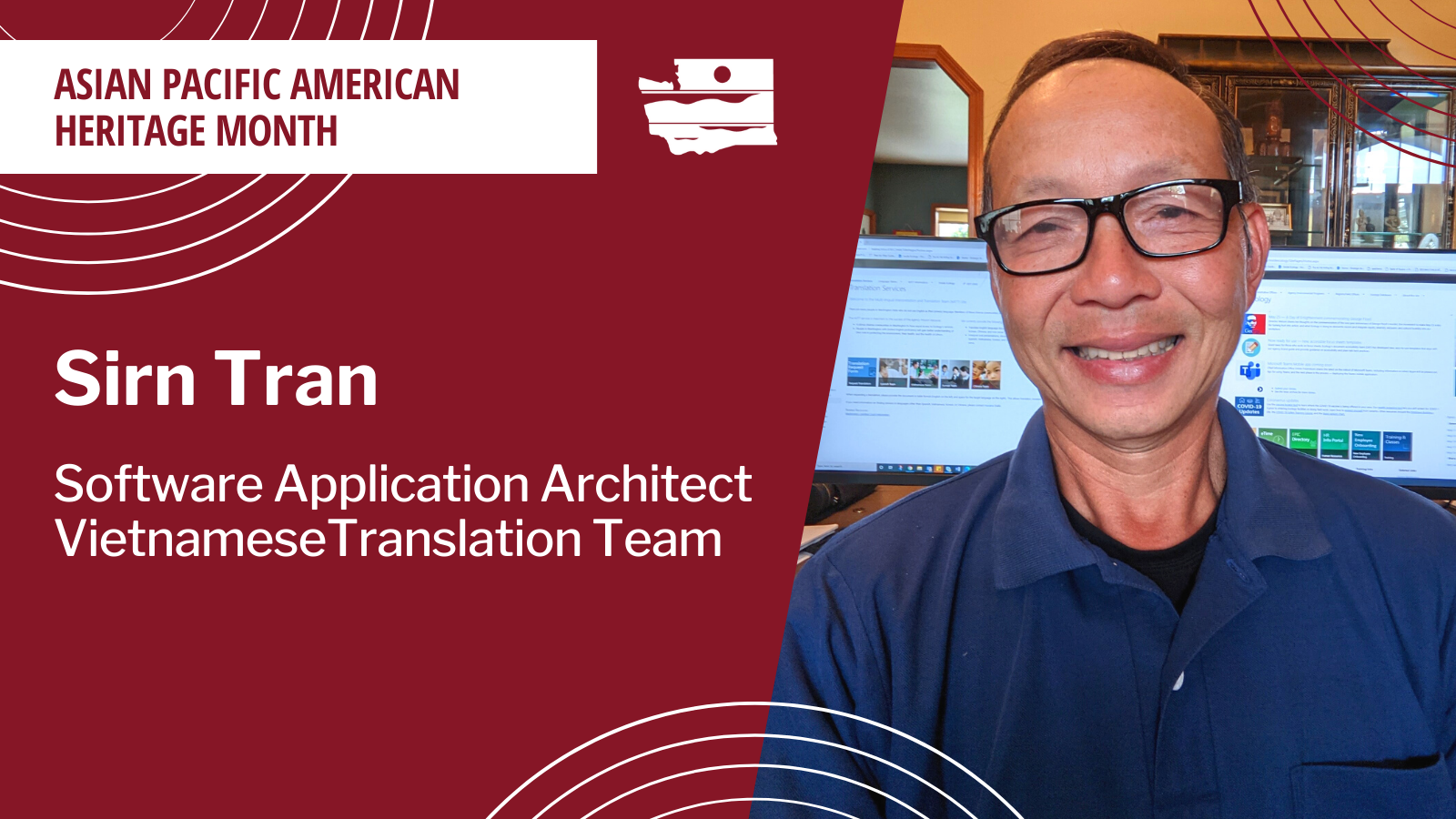
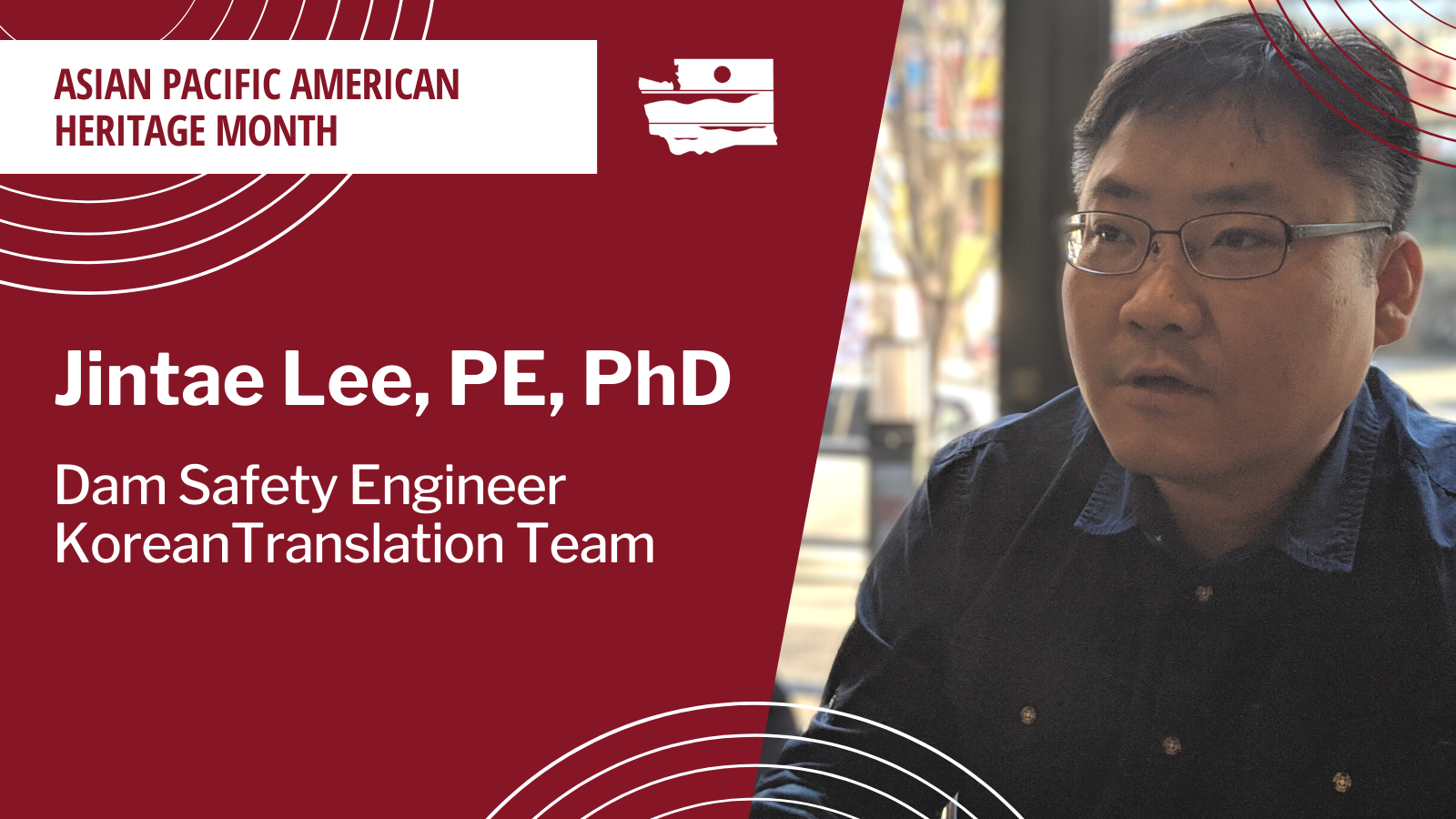
.png)
